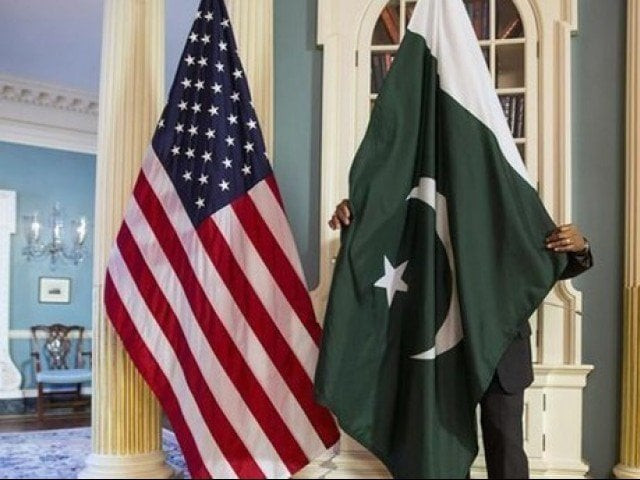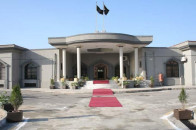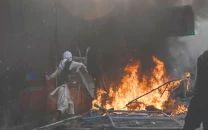Pakistan in a bind over US summit
Security, economic situation complicates Islamabad’s position

The democracy summit, which would be hosted by US President Joe Biden in Washington this week, has forced Pakistan to walk a tightrope.
Pakistan is among over 100 countries invited by the Biden administration on a three-day summit to be kicked off on Tuesday. However, Islamabad is in a bind -- to take a call on the US invitation or not.
Official sources said intensive consultations were going on late Monday night. “The final decision will be taken on Tuesday,” according to the sources.
What makes Pakistani decision complicated is that the US has not invited China and Turkey while Taiwan would be attending the summit. Pakistan enjoys close relations with China and Turkey and whatever decision the relevant quarters would take will keep both the counties, particularly Beijing's concerns, in view.
Islamabad skipped the first US democracy summit in December 2021 because of China’s exclusion from the event. Pakistan also stayed away from the summit since President Biden didn't speak to the then prime minister Imran Khan. Moreover, Imran was only asked to send a recorded video statement for the summit, something that compelled the government to stay away.
Read more: Pakistan again says no 'backchannel' talks with India
The Foreign Office had issued a diplomatic statement thanking the US for the invitation and said it would engage with Washington at an appropriate time. Beijing welcomed Islamabad's move reinforcing the perception that Pakistan had taken the decision at the behest of China.
This time the government is facing a similar but perhaps more complex situation. Since the change of government in April last year, there has been visible push by both Pakistan and the US to reset their ties. Similarly, Pakistan is desperately looking for the IMF bailout and the US role could be very crucial in that.
But at the same time Pakistan cannot antagonise China, whose support is critical for the country in case there is no IMF deal.
It is because of the reasons that the final decision hasn't yet been taken. "Frankly, we need to stay neutral. We need to stay out of this power game of big powers," said a source suggesting that Pakistan might opt out of the democracy summit.
Meanwhile, President Biden has invited 121 leaders for the three-day, mostly virtual summit — eight more than in 2021.
The sessions will bring in civil society representatives for discussions on a range of challenges to democracy, including surveillance technology, which the US sees as a growing threat as China makes rapid technological advances.
"In the absence of pending Congressional action in that space, it is important that the administration is engaging bilaterally with other countries and also with companies on voluntary actions that can be taken in the interim," Flacks said.
The summit will open Tuesday with a virtual conversation on peace in Ukraine featuring President Volodymyr Zelenskyy.


1734343609-0/Untitled-design-(91)1734343609-0-208x130.webp)
















COMMENTS
Comments are moderated and generally will be posted if they are on-topic and not abusive.
For more information, please see our Comments FAQ